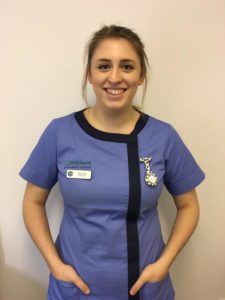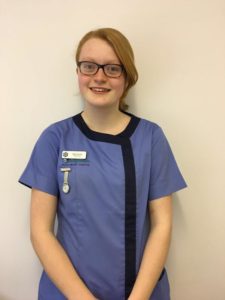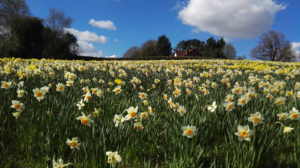Over the last year we have had two student nurses completing a year in practice as part of their veterinary nursing degrees. We are pleased to say both Amy and Izzie successfully completed their nursing progress logs and are returning to university to complete their qualifications-well done!
It has been extremely helpful to have them around the practice and we want to thank them both for all of their hard work. We wish them good luck in their future careers and hope to see them back soon as fully fledged qualified nurses.
Hollybank are continuing to be a training practice and have already welcomed two new student nurses for their placement year. Please meet Claire and Katie who look forward to getting to know our clients and their pets.
Claire is a BSc Veterinary Nursing student at Harper Adams University who is currently completing her sandwich year placement with us.
She has moved into her new flat in Sandiway from Manchester and is enjoying her medical nursing module. She has a keen interest in neonatal after care and reproductive disorders. She has two rabbits back home called Oreo and Bailey and hopes to get her first puppy after university.
Katie is currently studying BSc Veterinary Nursing at Harper Adams University and is doing her placement year with us at Hollybank. Katie particularly enjoys caring for our feline patients and making them feel at home when they are staying with us.
She has just moved to Sandiway from Shropshire, and is enjoying getting to know the area and local walk ways. Katie owns two goldfish, Oliver and Chester, and a cat called Merlin, who lives back at home on her family farm.




